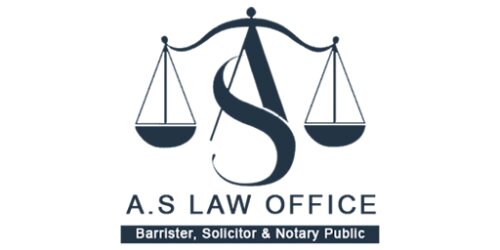Best Divorce & Separation Lawyers in Winnipeg
Share your needs with us, get contacted by law firms.
Free. Takes 2 min.
Free Guide to Hiring a Family Lawyer
List of the best lawyers in Winnipeg, Canada
About Divorce & Separation Law in Winnipeg, Canada
Divorce and separation laws in Winnipeg, as in the rest of Canada, are governed by federal legislation through the Divorce Act, while provincial laws, such as the Manitoba Family Maintenance Act, influence related matters like property division, child custody, and support. Divorce occurs when a married couple decides to legally end their marriage, while separation involves a couple living apart without formally ending the marriage. Both processes can be complex, involving various legal aspects that might affect one's financial, social, and emotional well-being.
Why You May Need a Lawyer
Seeking legal advice from a lawyer is crucial for navigating the complexities of divorce and separation. People often require legal help in situations such as dividing assets and debts fairly, determining child custody and support, spousal support negotiations, drafting separation agreements, and representation in court if disputes arise. Legal expertise ensures that one's rights and interests are adequately protected and that all court documentation is correctly handled.
Local Laws Overview
In Winnipeg, legal matters concerning divorce and separation are primarily governed by the federal Divorce Act. Manitoba's provincial laws, including the Family Maintenance Act, address issues like property division, support obligations, and child welfare. Notably, Manitoba uses an equalization model for property division, meaning assets and debts acquired during the marriage are generally divided equally, although exceptions may apply. The province also emphasizes the best interest of the child when determining custody arrangements, aligning with child-focused considerations at the federal level.
Frequently Asked Questions
What is the difference between separation and divorce?
Separation occurs when spouses live apart but remain legally married. Divorce is the legal dissolution of the marriage through a court order.
How is child custody determined in Winnipeg?
Custody decisions are based on the best interests of the child, considering factors such as the child's relationship with each parent, stability, and each parent's ability to care for the child.
Can I get a divorce without a lawyer?
While self-representation is possible, it is generally advisable to consult with a lawyer to ensure your legal rights are protected and all procedures are correctly followed.
How long does the divorce process take?
The length of the divorce process varies but typically takes several months to over a year, depending on the complexity of the case and whether it's contested or uncontested.
What are the grounds for divorce in Canada?
The only legal ground for divorce in Canada is the breakdown of the marriage, demonstrated by a one-year separation, adultery, or cruelty.
How is spousal support determined?
Spousal support is determined by factors such as the length of the marriage, each spouse's financial situation, and their respective roles during the marriage.
How is property divided after separation?
Typically, property acquired during the marriage is split equally, but exceptions exist, and certain factors might affect the division.
Do we need to go to court for a divorce?
Not always. Many divorces are settled out of court through negotiation or mediation. Court involvement mainly occurs when disputes cannot be resolved.
What happens to our debts after divorce?
Debts are usually divided similarly to assets; the responsibility may depend on who incurred the debt and its nature.
Can I change my name after divorce?
Yes, you can legally change your name following a divorce, either reverting to a former name or adopting a new one.
Additional Resources
For those seeking further information or assistance, the following resources can be highly beneficial:
- Legal Aid Manitoba - Offers legal services for eligible individuals.
- Family Law Manitoba - Provides comprehensive guides on family law issues.
- Manitoba Justice Family Law Branch - Offers information and services to assist with family law matters.
- Community Legal Education Association (CLEA) - Provides public legal education and resources.
- Government of Canada's Family Law website - Offers federal-level insights and information.
Next Steps
If you're seeking legal assistance for divorce or separation in Winnipeg, consider taking the following steps:
- Consult with a family law attorney to discuss your unique situation and options.
- Gather all relevant documentation, such as financial records, marriage certificates, and any agreements or court orders.
- Consider mediation or collaborative law as alternative dispute resolution methods.
- Prepare for negotiations by understanding your rights and responsibilities under both federal and provincial law.
- Contact local legal aid services if financial constraints impact your ability to retain private counsel.
Lawzana helps you find the best lawyers and law firms in Winnipeg through a curated and pre-screened list of qualified legal professionals. Our platform offers rankings and detailed profiles of attorneys and law firms, allowing you to compare based on practice areas, including Divorce & Separation, experience, and client feedback.
Each profile includes a description of the firm's areas of practice, client reviews, team members and partners, year of establishment, spoken languages, office locations, contact information, social media presence, and any published articles or resources. Most firms on our platform speak English and are experienced in both local and international legal matters.
Get a quote from top-rated law firms in Winnipeg, Canada — quickly, securely, and without unnecessary hassle.
Disclaimer:
The information provided on this page is for general informational purposes only and does not constitute legal advice. While we strive to ensure the accuracy and relevance of the content, legal information may change over time, and interpretations of the law can vary. You should always consult with a qualified legal professional for advice specific to your situation.
We disclaim all liability for actions taken or not taken based on the content of this page. If you believe any information is incorrect or outdated, please contact us, and we will review and update it where appropriate.











